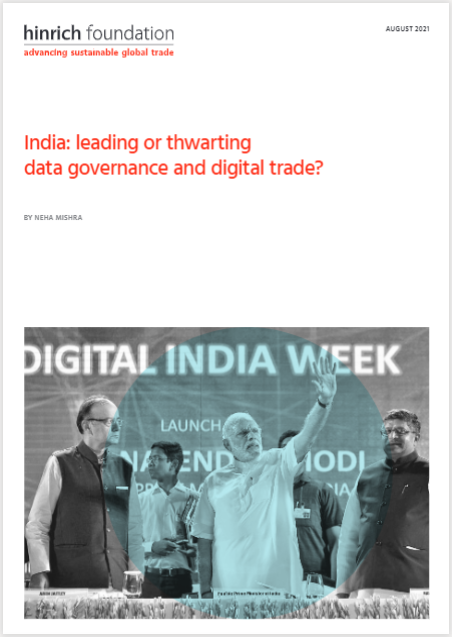Published 10 August 2021
The paradoxical characterization of India's data governance framework is hard to miss. As the country aspires to become a leading global tech hub, its inward-looking approach for regulating data could be counterproductive from a geopolitical perspective and weaken India's booming digital services industry.
In May 2020, India, the world's largest democracy, launched the AatmaNirbhar Bharat Abhiyan program. One of the program’s key pillars is self-reliance in digital technologies and the development of an independent digital economy. If successful, this would reflect the current government’s deep seated nationalist agenda.
It remains unclear how India's framework for data governance will impact domestic economic growth, bridge the domestic digital divide, and create equitable economic opportunities for micro-entrepreneurs. This inward-looking approach ignores the geopolitical repercussions of ringfencing a large developing country from the global digital economy. It may also eventually undermine the global competitiveness of India’s highly successful digital services sector.
This essay by Neha Mishra, Lecturer at The Australian National University College of Law, notes that from a global perspective, India cannot become a leader in digital exports and digital services through isolationism or non-participation in global dialogues on digital trade. Rather, India must cooperate with other countries to find solutions to complex data governance problems, including feasible frameworks for cross-border data flows. If India's efforts towards data governance strike a reasoned and pragmatic balance between protecting domestic interests and opening the digital economy, it can play a catalysing role in setting the rules for global digital trade.
This essay is part of a series of papers that focuses on data governance and trade.
© The Hinrich Foundation. See our website Terms and conditions for our copyright and reprint policy. All statements of fact and the views, conclusions and recommendations expressed in this publication are the sole responsibility of the author(s).







